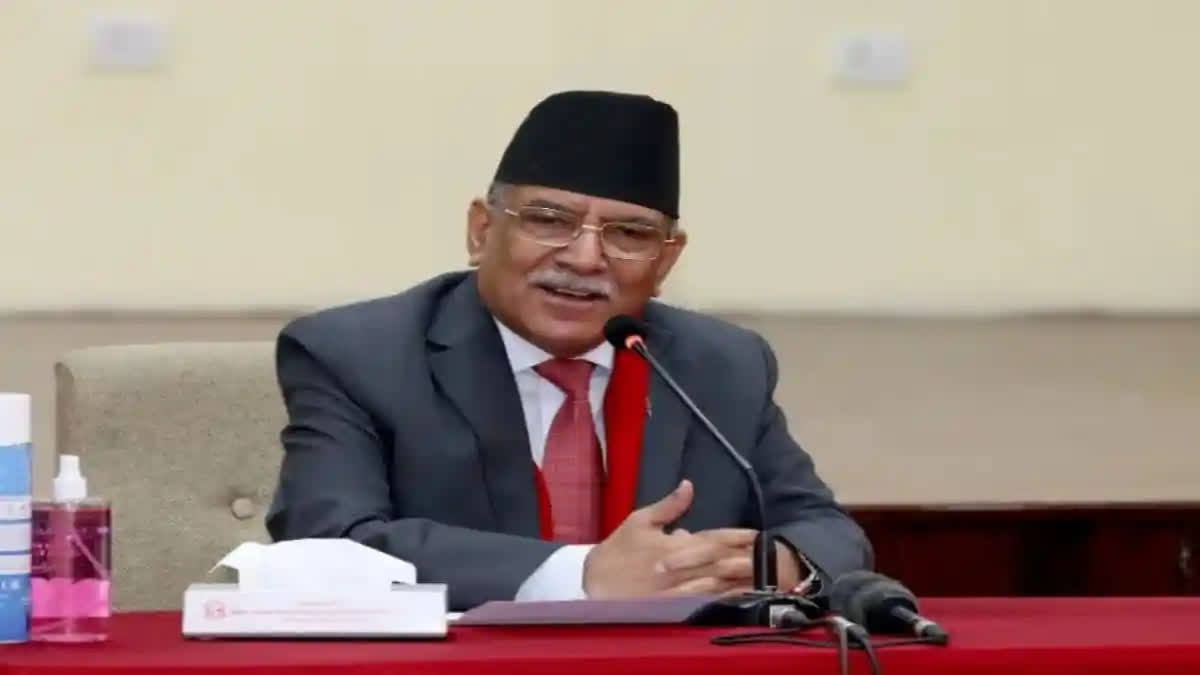New Delhi: Though Nepal Prime Minister Pushpa Kamal Dahal has promised to make policy reforms to boost foreign investments in his country, Indian investors are unlikely to rush into the Himalayan nation for a variety of reasons, experts believe.
Dahal held a meeting with a delegation of the Confederation of Indian Industry (CII) that had gone to Kathmandu to participate in the 58th annual general meeting of the Federation of Nepalese Chambers of Commerce and Industry.
According to a report in the Kathmandu Post, during the meeting, Dahal said that the Nepal government is willing to make policy reforms to facilitate foreign investors. He also pledged logistical support to foreign investors and urged the CII delegation to facilitate investment in Nepal.
The delegation also held meetings with Nepal Finance Minister Barsha Man Pun and Commerce and Industries Minister Damodar Bhandari. According to the Post report, Pun told the CII delegation that the Indian economy plays a big role in Nepal’s economy and said that he would do everything within his capacity to promote trade and investment between Nepal and India.
On his part, Bhandari said that all necessary support would be extended to foreign investors to set up industries in Nepal. The CII delegation is visiting Nepal days after the country’s Foreign Minister Narayan Kaji Shrestha visited China and sought Chinese investments in the Himalayan nation. He also proposed the creation of an economic corridor under a renewed plan to implement Chinese President Xi Jinping’s pet Belt and Road Initiative (BRI) in Nepal.
But, the fact of the matter is that Nepal is finding it hard to attract foreign direct investment for many reasons, including political instability and lack of proper vision for development.
Problems within Nepal
According to Kathmandu-based political analyst Hari Roka, Nepal does not have proper infrastructure. “But, we are not even finding out what kind of infrastructure we need,” Roka told ETV Bharat over the phone from Kathmandu. “We are not sure for what purpose we need foreign investments.”
He said that most foreign investors go to Nepal to invest only in the hydropower sector. “That does not generate much employment,” Roka said. “India’s Adani Group, too, wants to come here to invest in hydropower and water resources.
He also said that Elon Musk would also be going to Nepal looking for investment opportunities in the telecommunications sector. “But, we have, too, many controversies here. The government is not even talking about how it will deal with foreign investors,” Roka said.
Lack of confidence among Indian investors
According to Nihar R Nayak, a Research Fellow at the Manohar Parrikar Institute of Defence Studies and Analyses and an expert on issues about Nepal, there will not be much investment from the Indian side due to frequent changes of government.
“When governments change, policies change,” Nayak said. He pointed out that Dahal is leading a Left-leaning coalition government that was formed only last month. “This government will not last long, I would say at the most a year,” he stated. “As such, Dahal’s promises are not sustainable.” Another major problem is the bureaucracy in Nepal.
“The bureaucrats in Nepal, most of whom are Left-leaning, are not cooperative with Indian investors,” Nayak said. “Whenever they see any big investment coming from India, they create all sorts of hurdles and delays.”
As for lack of vision and planning, he pointed out the fact that on the very day that Dahal met the CII delegation, Finance Minister Pun and Energy and Water Resources Shakti Bahadur Basnet held a meeting with the Asian Development Bank and the World Bank for the development of the Upper Arun Hydroelectric Project. “Why did they not approach India?” he asked. “After all India is their largest market for power.”



